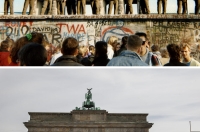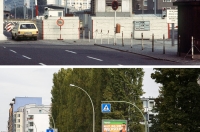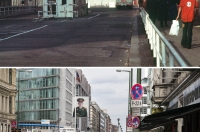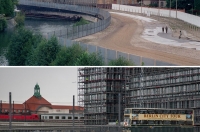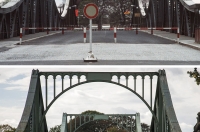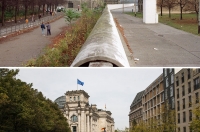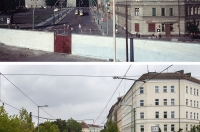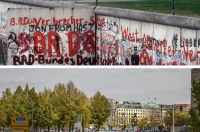Before, during and after the fall of Berlin Wall
To mark the 30th anniversary of the fall of the Berlin Wall, which changed the face of Europe and the world, AFP blogs bring you three tales -- before, during and after that shining moment in history.
Sabine Nickel, the secretary in AFP's East Berlin bureau who went on to work in the office of the re-unified capital and retired only last year, reminisces on what life was like behind the Iron Curtain.
Richard Ingham takes the reader on a tour of the night the wall fell, with the shock, confusion and sheer luck that helped make it such a poignant, momentous occasion.
Deborah Cole paints the wonder that was East Berlin in the 1990s, following the fall of the wall, when bacchanalian nightlife, bourgie squatters and people with ideas defined the city's golden age.
Enjoy.
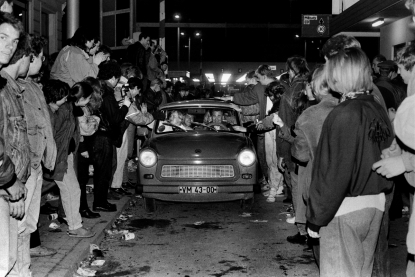 East Berliners are welcomed by the crowd as they enter West-Berlin by car at the Checkpoint Charlie on November 9, 1989. (AFP / Francoise Chaptal)
East Berliners are welcomed by the crowd as they enter West-Berlin by car at the Checkpoint Charlie on November 9, 1989. (AFP / Francoise Chaptal)Stuck at home with the kids as History rushes by
By Sabine Nickel
Then East Berlin —We had the same ritual at AFP’s East Berlin bureau every day. Around 8:30 am, Charles-Henri Baab, the bureau chief, would emerge in a bathrobe from the part of the vast apartment that served as his living quarters. “Anything happening?” he would ask me.
Continue reading here.
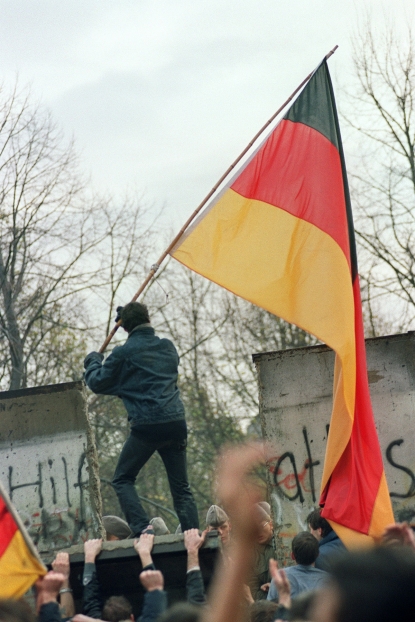 A West Berliner prepares to hand over a West German flag through a portion of the fallen Berlin Wall near the Brandenburg Gate early 11 November 1989. (AFP / Gerard Malie)
A West Berliner prepares to hand over a West German flag through a portion of the fallen Berlin Wall near the Brandenburg Gate early 11 November 1989. (AFP / Gerard Malie)When the Berlin Wall came tumbling down
By Richard Ingham
A brittle cold gripped the air, and the ink-black sky was dusted with stars. Unlit and pot-holed, the streets of Mitte, the heart of East Berlin, were treacherous to walk on. Ghosts seemed all around me. Blackened buildings still bore the scars of shelling in 1945. A few hundred metres away, the remains of Hitler’s bunker lay entombed in the Death Strip – the no-man’s-land of the Berlin Wall. Everything was grey and menacing, and with the leaden feel of eternity.
Within hours, all this would change. It was the evening of November 9 1989, and the world was about to be transformed.
But how the event unfolded belies those who argue history is the outcome of titanic forces. Some today see the fall of the Berlin Wall as the inevitable result of Soviet decline. Yet to those who experienced it, the night itself was filled with confusion and danger. Mistakes, individual decisions and sheer luck, far more than the giant hand of history, shaped the outcome.
Continue reading here.
 A person walks down the stairs in one of Berlin's most famous artist colonies, the Kunsthaus Tacheles, taken on January 29, 2010. (AFP / John Macdougall)
A person walks down the stairs in one of Berlin's most famous artist colonies, the Kunsthaus Tacheles, taken on January 29, 2010. (AFP / John Macdougall)Let them come to Berlin
By Deborah Cole
Berlin -- 1920s Paris, 1970s New York, 1990s Berlin. Is it always clear to people that they're living through a golden age?
For me at least, when I first arrived in the German capital a quarter century ago, I worried I'd already missed the party. Little did I know the band was just warming up.
Continue reading here.
